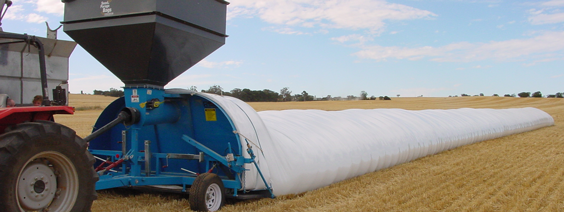
On-farm grain storage has been a hot topic of late, with more and more growers looking to invest in some form of storage system on-farm.
On-farm storage systems can come in varying forms, sizes and capacity. They also differ in the level of investment. Planning is an important aspect when it comes to investing in on-farm storage. The decision needs to be strategic because grain storage systems are a long-term investment that cannot be easily changed or sold.
When it comes to on-farm grain storage there are three key points to consider:
- What is your strategy: Can you define the purpose of the investment?
- How can you leverage existing plant/equipment and labor?
- Work through the numbers to create a business case. Simply being frustrated with an existing bulk handler is not a business case.
When defining the strategy, there is a need to take a market first, infrastructure second approach. Clearly defining the type of markets and supply chains you want to access can give perspective on the level of investment required. Is it short-term (0 to 3 month) silo bag options or is it longer-term (0 to 12 month) vertical silos or sheds?
The term, ‘you do not make money on air space’, is something that comes up when discussing on-farm storage, meaning that the entire facility needs to be used and leveraged. It is a long-term investment with a long payback period. The type of storage, the fit for the business and the strategy need to match.
Taking control of your grain storage and having it stored on-farm, also means that you take on the responsibility to manage the quality and logistics of the grain.
There are no shortcuts when managing grain quality. It needs to be done properly to ensure that you are delivering grain within specification to suit the end user demand. Out of spec grain can quickly erode any premiums for storing your grain on-farm in the first place.
Contracting grain on-farm or delivered to an end user takes time and resources and is another aspect that needs to be managed. A lot of the time the contracts are done on a buyer call basis. This means that you are required to deliver the grain or load contracted trucks when the buyer calls on your grain. There will be notice given to prepare and plan, however delivery or loading times do not stop for a good spraying day or other pressing duties undertaken on the farm.
At Pinion Advisory, we can work with you to help determine the strategy with on-farm grain storage and develop a thorough analysis on costs of storage. A round of workshops throughout South Australia on on-farm grain storage will be held. Dates to be determined following COVID lockdown and restrictions.
Email us for more information.